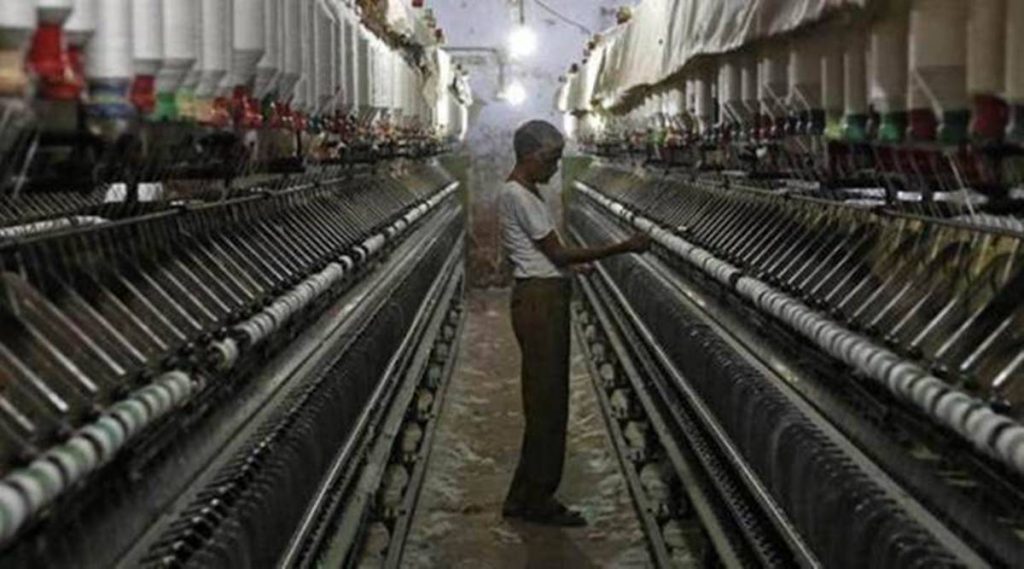
The Union Cabinet on 30th June 2021 promulgated the Essential Defence Services Ordinance (EDSO). The ordinance was passed in haste and with the rationale that the parliament is not in session and that the ordinance needs to be effective for emergency purposes. The urgent and immediate impetus for EDSO is the call for an indefinite strike by workers under the Ordnance Factory Board (OFB) which includes more than 80,000 workers in 41 ordnance factories spread across the country. The EDSO makes strikes and many other industrial actions – including denying to work overtime illegal for workers in any industry that are linked with the production or are essential for the function of defense manufacturing and services. This could include workers in the Mahindra factory engaged in the manufacturing of armored vehicles. The ordinance is in force for 6 months and can be extended every 6 months for the same amount of time.
The EDSO is a draconian law that does away with even the mild labor protections prescribed by ILO standards – most of which are not binding for India, as we have not ratified even the basic ILO conventions. But in this article, I will break down why the labour federations of civilian defense workers are going on strike starting 26th July.
Why are the five federations of the OFB and other trade unions calling for a strike?
The OFB is a government agency that works as the management for 41 ordinance factories and engages in research, development, production, testing, marketing, and logistics of products ranging from small arms, anti-aircraft weapons, tanks, missile launchers, to engines, machine tools, chemicals, and optoelectronics. It comes under the Department of Defence Production (DDP).
In the 2020-21 Union Budget it was announced that “In strategic sectors, there will be a bare minimum presence of the public sector enterprises. The remaining CPSEs (Central Government Public Sector Enterprises) in the strategic sector will be privatized or merged or subsidiaries with other CPSEs or closed.” The strategic sectors classified in the document included Defence, Atomic energy, Space among many others.
In May 2020 during the Atmanirbhar Bharat package announcement, Finance Minister Nirmala Sitharaman made public the decision of corporatization of OFB for “improving autonomy, accountability, and efficiency in ordnance suppliers”. To oversee the corporatization process Group of Ministers, headed by Defence Minister Rajnath Singh, was constituted. KPMG Advisory Services (a subsidiary of the Netherland-based firm) leads the consortium as the consultants for the transformation.
The OFB workers’ federations are striking against this corporatization of the OFB, the world’s largest government-controlled defence producer.
What does corporatization of OFB mean?
As mentioned above, OFB is a government agency and agencies cannot be privatized or as a corporate entity enter into Public-Private Partnerships with private defence manufacturers. And because it is not a corporate entity it is not bound to generate profits for its shareholders every quarter. As an agency, it can work under “loss” to maintain high wages, social security, quality control, and other essential social goods which a profit-maximizing firm cannot.
The cabinet has authorized converting these 41 factories into 7 corporations. They are:
Ammunition and explosives group
Vehicles group
Weapons and equipment group
Troop comfort items group
Ancillary group
Opto-electronics group and
Parachute group
The constitution of the board of directors, creating a corporate plan for the corporations would be the next steps. All of this is going to be extremely difficult, especially given the spatial distribution and levels of technical specializations of different factories. But given the haphazard way in which the plan was announced planning seems wanting.
What are the “experts” telling us?
For Rajnath Singh increasing the quantum of defence export is the primary goal of the corporatization exercise. While for many retired military officers and “experts” it is increasing competition between producers resulting in lower acquisition costs and improving products range. Questions like ‘whether these are worthy goals’ or even if we assume that they are then ‘is corporatization the most credible strategy for achieving them’ have not sufficiently been discussed among the stakeholders, primarily with the OFB and the workers.
But appropriately enough in 2020, an internal report was leaked claiming that OFB was responsible for more than 400 accidents through manufacturing defects. The report was never shared with the OFB and the reporting on the leak failed to consider that most of these accidents could be because of unauthorized design changes, poor maintenance, or faulty fire drillings.
The basis of such proposals is put into doubt by some facts. India is constantly increasing its quantum of defence exports – India was the 23rd global major arms exporter for 2015-2019 and 19th for 2019. The Ministry of Defence’s annual report 2018-19 records India’s defence exports at Rs 10,745 crore, a growth of over 100 percent from 2017-18 (Rs 4,682 crore). OFB is a major player in these exports.
In addition to that, a 2019 study drawing lessons for India from the UK’s defence privatization by Jonathan S. Swift published in the Journal of Defence Studies (Journal of the MoD funded IDSA think-tank) found that “judged in terms of cost reduction, privatization has been a failure.” (pg. 20.)
What is the context of this move?
Privatization of the sectors that were predominantly under public control saw significant push under Bajpai rule. First, commercial aviation and importantly in 2003 Indian Petrochemicals Corporation Limited (IPCL) to Reliance Industries (RIL) for pennies. Then, in 2005 came MoD-appointed Kelkar Committee’s report recommending to corporatize the OFB to improve its efficiency. The report remained in limbo till 2020. But in the meantime, starting in 2009 more than 20 international defense manufacturers established subsidiaries in India – almost all headquartered within shouting distance from Raisina Hill and with ties with defense think tanks. 2014-15 saw the announcement of the Make in India campaign – defence is the biggest component of the campaign.
It is also worth noting that the Cabinet Committee on Security that approved OFB corporatization has the Minister of Finance and Corporate Affairs as a member. And between 2017-2019 Nirmala Sitharaman was the Minister of Defence. Making Sitharaman, Rajnath Singh, Modi, and Amit Shah the primary supervisors of the policy.
What will be the implications of corporatization?
Depending on the exact nature of the next step by the Singh-led Minister’s Group the whole exercise could mean either of two things: first, gradually being sold to private corporations, or second, gradually and through conscious policies being wiped out of the market, like Air India and BSNL.
Either way, one thing is clear: the influence of private, for-profit corporations that live on the war and waste industry will have more and direct influence over India’s foreign and domestic policies. The market for domestic weapons and surveillance systems will also grow. For most of the 80,000 workers, it would mean the end of government workers’ status and a turn to contract jobs and even lay-offs.
By more deeply entrenching industries and economy into war industry, OFB corporatization will be a big step in the direction away from a more peaceful South Asia. It must be resisted and stopped.
